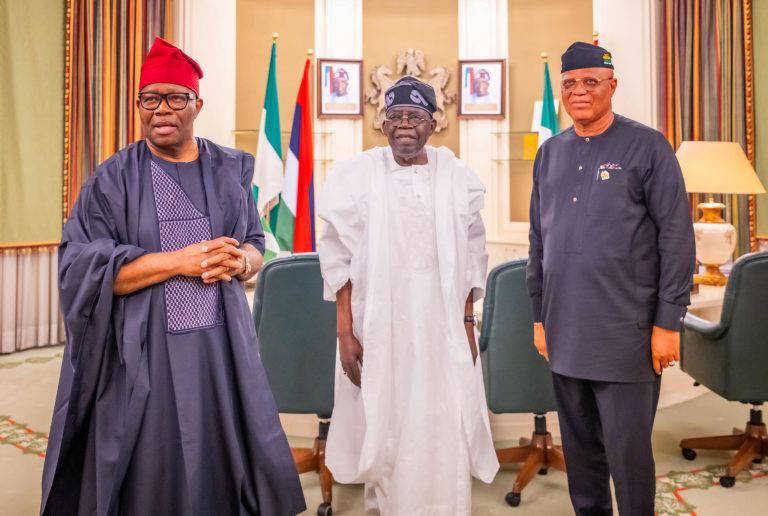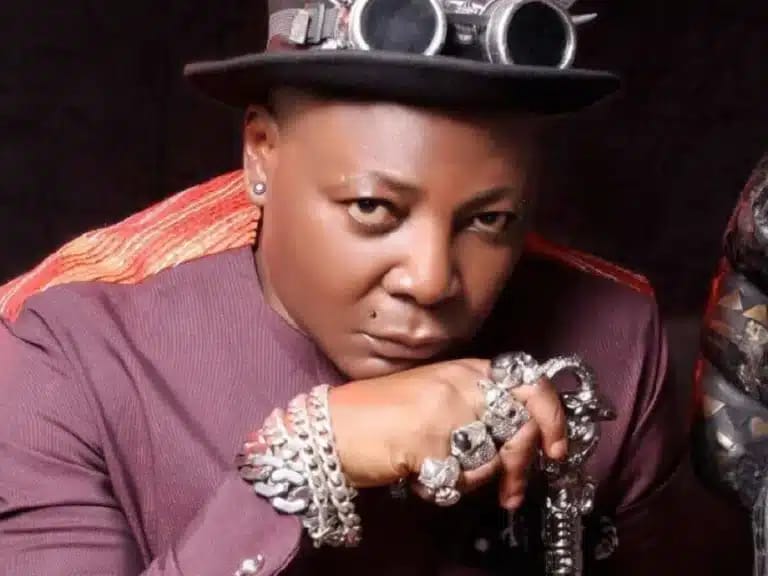The recent wave of defections by governors in Nigeria’s South-South from the Peoples Democratic Party (PDP) to the All Progressives Congress (APC) has unsettled the region, provoking mixed reactions from political heavyweights and party loyalists. Once considered the PDP’s stronghold since the return to democracy in 1999, the South-South has witnessed a dramatic shift in political alignments in 2025, altering decades of dominance and raising concerns about the future of the party in the oil-rich zone.
In Akwa Ibom, Governor Umo Eno’s defection to the APC has been particularly contentious. His move has been interpreted as a betrayal of his immediate predecessor and political godfather, former Governor Udom Emmanuel, who installed him as governor in 2023 against the opposition of Senate President Godswill Akpabio. Eno had previously acknowledged Emmanuel as his political father, Akpabio as his political grandfather, and Obong Victor Attah as his great-grandfather. However, by aligning with Akpabio after leaving the PDP in June, Eno broke with Emmanuel, who remains a staunch PDP leader.
Defending his defection, Governor Eno described himself as the driver of the state, insisting he knows the political direction free of “traffic jams and potholes.” He stressed that his decision was necessary to align Akwa Ibom with the national leadership represented by Senate President Akpabio. Emmanuel, through his media aide, refrained from openly criticizing the governor, stating he was keeping his promise to step back from active interference in state governance. Nevertheless, Emmanuel’s allies, including former Attorney-General Emmanuel Enoidem and Commissioner Ini Ememobong, have remained in the PDP and are mobilizing to strengthen the party ahead of its national convention in November.
Meanwhile, opposition groups are reorganizing. Former minister Duke Gabriel and Senator John Akpan Udoedehe have regrouped into the African Democratic Congress (ADC), forming a third force in the state with the aim of challenging both APC and PDP dominance in 2027. Former Governor Attah, once a key figure in Akwa Ibom politics, has largely withdrawn from active political involvement.
In Cross River, the consequences of former Governor Ben Ayade’s 2020 defection from the PDP to the APC still resonate. Ayade’s departure, following internal disputes and external interference in party congresses, destabilized the PDP’s structure. His “Food on the Table” populist policy had placed thousands of people on the state payroll, and many defected with him to the APC. His fallout with political godfather Liyel Imoke turned bitter, leading to a collapse of PDP unity. Former Governor Donald Duke also engaged in a public war of words with Ayade during the 2023 election campaigns, accusing him of mismanaging the state, though the confrontation later subsided.
By 2023, Senator Bassey Otu emerged as Cross River’s governor under the APC banner, cementing Ayade’s legacy of weakening the PDP. Today, Imoke and his allies, including Senator Gershom Bassey, have joined the ADC, vowing to reclaim political control from the APC in 2027. Imoke, often referred to as the “Avatar” of Cross River politics due to his enduring influence, is now repositioning himself as a rallying point for anti-APC forces in the state.
In Delta, the defection of Governor Sheriff Oborevwori alongside his predecessor, former Governor Ifeanyi Okowa, has been less acrimonious. Both leaders orchestrated a smooth transition of Delta into the APC, ending the PDP’s 26-year grip on the state. Former Governor Emmanuel Uduaghan, who had previously oscillated between the APC and PDP, also returned to the APC to support Oborevwori. His daughter, Orode Uduaghan, commissioner for humanitarian affairs, defected with him.
Former Governor James Ibori, once the undisputed leader of the PDP family in Delta, has kept a low profile since his preferred candidate, David Edevbie, was blocked during the 2022 primaries by Okowa. While Ibori has not officially announced his exit from the PDP, he is now widely seen as aligned with President Bola Tinubu and the APC leadership. Oborevwori still pays respect to Ibori as a father figure, but his political loyalty appears firmly tied to Okowa, who he credits as instrumental in his rise from speaker of the state assembly to governor.
The defections across Akwa Ibom, Cross River, and Delta signal a significant realignment in South-South politics. For decades, the PDP was entrenched in the region, but the mass movement of governors and their allies into the APC has shifted the balance of power. Analysts suggest that these developments could reshape the political landscape ahead of the 2027 general elections, particularly as splinter groups like the ADC emerge to challenge the two dominant parties.
While some view the defections as pragmatic alignments with the ruling party at the federal level, others see them as betrayals of longstanding party loyalty and mentorship. For the PDP, the challenge now lies in rebuilding its structure and reconnecting with grassroots supporters in a region once considered its safe zone. The unfolding political maneuvers across the South-South underscore how quickly alliances can shift in Nigerian politics, leaving uncertainty over which party will ultimately dominate the region in the years to come.





